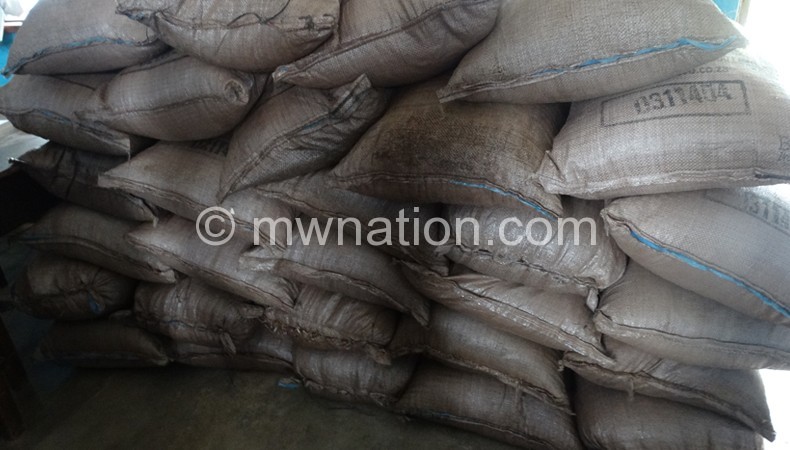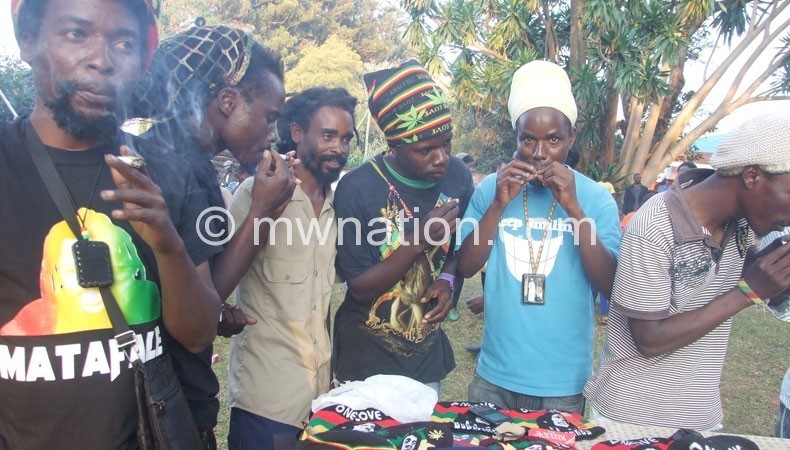Will industrial hemp bring economic miracles?
Government last week announced that President Peter Mutharika had approved the cultivation of industrial hemp for trial purposes. The approval was a culmination of a sustained campaign by disparate groups of individuals who extolled the benefits of cultivating the crop to the country’s economic well-being.
But can industrial hemp alone turn the fortunes of Malawi?

Police Station
“Industrial hemp alone cannot be a nostrum for the country’s economic problems. In fact, no crop can single-handedly do this, but with well focussed and supported research, hemp can stimulate tremendous benefits to the economic landscape as the crop has viable positives,” says Ntchisi North Member of Parliament Boniface Kadzamira who has been championing the legalisation of cultivation of industrial hemp in the country.
His strong stance on the plant has resulted in an increased momentum and significant shift in perceptions of the crop.
The case of whether or not to grow industrial hemp has attracted a lot of controversy, particularly over misconceptions that it is the same as legalising Indian hemp (cannabis sativa).
But in announcing Mutharika’s nod, Minister of Agriculture, Irrigation and Water Development Allan Chiyembekeza parried away those suggestions in an interview with our sister paper, The Nation: “Let me point out that industrial hemp is different from the much talked Indian hemp [chamba or cannabis sativa] that is prohibited. This [industrial] hemp does not contain the psychoactive chemical elements that affect people when smoked even though it is from the same family of crops.”
It was an announcement that struck a chord with Kadzamira.

“My argument has been that misconceptions about the plant overshadow its economic capacity including its varying pliancy to different industrial uses. Hemp has a huge commercial heritage and it must be understood that industrial hemp isn’t marijuana and there are very clear and easily perceptible differences,” he states.
The lawmaker affirms that there is an emerging market for hemp which must be taken advantage of.
“No money would be spent on enforcement laws against its cultivation. There will also be a lot of jobs created and as a result this will lead to a robust economy because those employees will be paying taxes,” he states.
Kadzamira is also upbeat about the salient characteristics of the crop.
“An acre of hemp produces more paper than pulp wood and this is also on an environmental side. Suppose we want to use it for paper, we won’t cut down trees for paper production. Industrial hemp takes only three to four years to mature and be ready for paper while a tree takes more than five years. Economically, there will also be a saving because we will simply engage communities to plant the herb and there will be no need to deploy soldiers to guard trees,” he adds.
Paliani Chinguwo, a hemp advocate, underscores the fact that hemp does not require fertilisers to grow, hence there will be a saving on forex used to import fertiliser.
“For the country to realise maximum economic benefits, we need to invite industries to come and establish industries so that they can be producing items like paper, sacks, medicines, hair and body lotions and many others right in the country. People must also understand that almost all products made from Soya beans such as milk, butter and flour can also be made from the crop,” said Chinguwo.
He went further to deplore prohibition which has been used by politicians to deter and prevent the social use of mind-altering substances deemed to be unsuitable for wider public use.
“In the US, for instance, prohibition was deeply unpopular with the public opinion of free-choice, and it gifted control of alcohol supply and all ensuing untaxed revenues to criminal gangs. This money was then used to amplify and fund criminal activities in other areas of society.
“Despite these findings, most countries have persisted with prohibition as the preferred system for cannabis even though the only beneficiaries are criminal gangs. But it’s my hope that this won’t be the case in this country,”.
But Jones Makuwira, a Lilongwe-based economist, warns that hemp cannot produce immediate miracles.
“It’s an economic risk in a way and you can’t expect an economic revolution quickly without putting up proper measures to guard against misuse. Elsewhere it has brought chaos because only a few and rich people benefit from its cultivation,” says Makuwira.






Greetings Hemp only takes 3 to 4 MONTHS to grow NOT 3 to 4 Years. A tree will take 5 years.
Good job Malawi this Is some of the best news I have heard In a long while from Malawi.
All developed nations are growing hemp, did you know that Hemp has more essential fatty acids then fish. Yes this plant has the most Omega 3 fatty acids then any other plant.
Do your research and you will see for yourself.
The Rastafari community has bee telling the world for many decades about this plant and It’s cousin Marijuana. It Is nice when people learn for themselves, you can lead a horse to water but you can’t force it to drink.